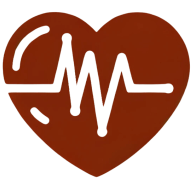Welcome to the world of cardiologist consultation services, a realm where heart health takes center stage. This blog post aims to guide you through the intricacies of these services, shedding light on their importance, the process, and what to expect. We'll delve into the role of cardiologists, the types of consultations they offer, and how these services can benefit your overall health.
Understanding the Role of a Cardiologist
A cardiologist is a medical professional specializing in diagnosing, treating, and preventing diseases that affect the heart and blood vessels. They play a crucial role in managing heart health, especially for individuals with a family history of heart disease or those experiencing heart-related symptoms.
Cardiologists undergo extensive training, including four years of medical school, three years of internal medicine residency, and three years or more in specialized cardiology training. This rigorous education equips them with the knowledge and skills to handle a wide range of cardiovascular conditions, from hypertension and arrhythmias to heart failure and coronary artery disease.
Cardiologist consultation services provide an avenue for patients to discuss their heart health concerns with these specialists. These services can range from preventive consultations for individuals at risk of heart disease to diagnostic and therapeutic consultations for those with existing heart conditions.
Types of Cardiologist Consultation Services
Cardiologist consultation services can be broadly categorized into three types: preventive, diagnostic, and therapeutic.
Preventive consultations focus on identifying risk factors and implementing strategies to prevent heart disease. During these consultations, cardiologists may discuss lifestyle modifications, such as dietary changes and exercise routines, to promote heart health.
Diagnostic consultations involve identifying and diagnosing heart conditions. Cardiologists use a variety of tests, including electrocardiograms, stress tests, and echocardiograms, to detect abnormalities. They then interpret these results to provide a diagnosis and develop a treatment plan.
Therapeutic consultations are for patients with diagnosed heart conditions. Here, cardiologists monitor the patient's progress, adjust treatment plans as necessary, and provide ongoing care to manage the condition effectively.
Preparing for a Cardiologist Consultation
Preparation is key to making the most of your cardiologist consultation. Start by gathering your medical history, including any previous diagnoses, treatments, and medications. Also, note down any symptoms you've been experiencing, even if they seem unrelated to your heart.
It's also beneficial to have a list of questions ready for your cardiologist. These could be about your risk factors, the meaning of certain medical terms, or the specifics of recommended treatments. Remember, no question is too trivial when it comes to your health.
Lastly, be prepared to discuss your lifestyle habits, such as diet, exercise, smoking, and alcohol consumption. These factors significantly impact heart health, and being honest about them will help your cardiologist provide the best care possible.
What to Expect During a Cardiologist Consultation
During a cardiologist consultation, you can expect a thorough evaluation of your heart health. The consultation will typically start with a discussion about your medical history and current symptoms. Your cardiologist will then perform a physical examination, focusing on your heart and blood vessels.
Depending on your symptoms and medical history, your cardiologist may order further tests. These could include blood tests, imaging tests, or heart monitoring tests. The results of these tests will guide the next steps in your care.
Throughout the consultation, your cardiologist will explain their findings and recommendations clearly. They will also answer any questions you may have, ensuring you understand your heart health status and treatment plan.
The Importance of Regular Cardiologist Consultations
Regular cardiologist consultations are crucial for maintaining heart health, especially for individuals with heart disease or at high risk of developing it. These consultations allow for early detection of heart conditions, which can significantly improve treatment outcomes.
Regular consultations also provide an opportunity to monitor the progress of existing heart conditions. This monitoring enables cardiologists to adjust treatment plans as needed, ensuring optimal management of the condition.
Moreover, regular consultations reinforce healthy lifestyle habits. Cardiologists can provide ongoing advice on diet, exercise, and other lifestyle modifications to support heart health.
Choosing the Right Cardiologist Consultation Service
When choosing a cardiologist consultation service, consider the cardiologist's experience and qualifications, the range of services offered, and the clinic's reputation.
Look for a cardiologist who specializes in your specific heart condition or risk factors. Also, ensure they offer the types of consultations you need, whether preventive, diagnostic, or therapeutic.
The clinic's reputation is another important factor. Look for positive patient reviews and high ratings, which indicate a high level of patient satisfaction.
Lastly, consider the clinic's location and availability. A conveniently located clinic with flexible appointment times can make your consultations less stressful and more manageable.
Wrapping Up: Navigating Cardiologist Consultation Services
Understanding cardiologist consultation services is the first step towards proactive heart health management. Whether you're seeking preventive care, a diagnosis, or ongoing treatment, these services provide the expertise and care you need. Remember, your heart health is in your hands, and regular consultations with a cardiologist are a vital part of maintaining it.

